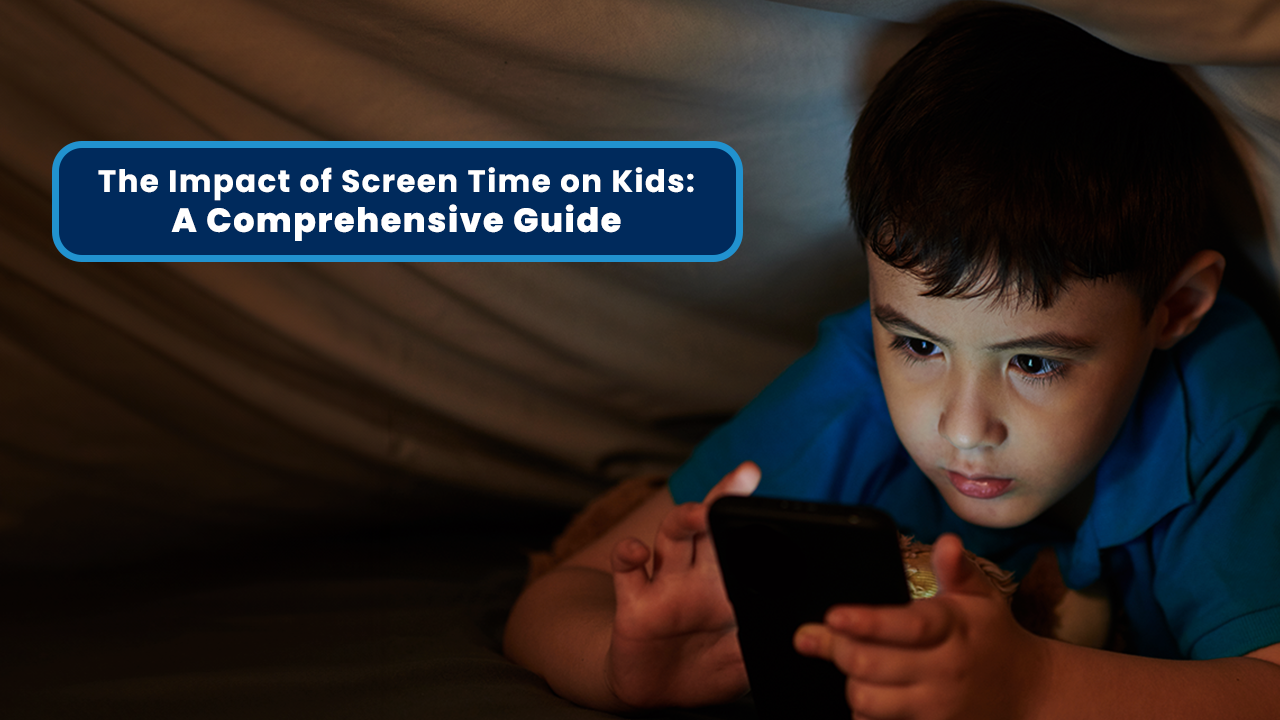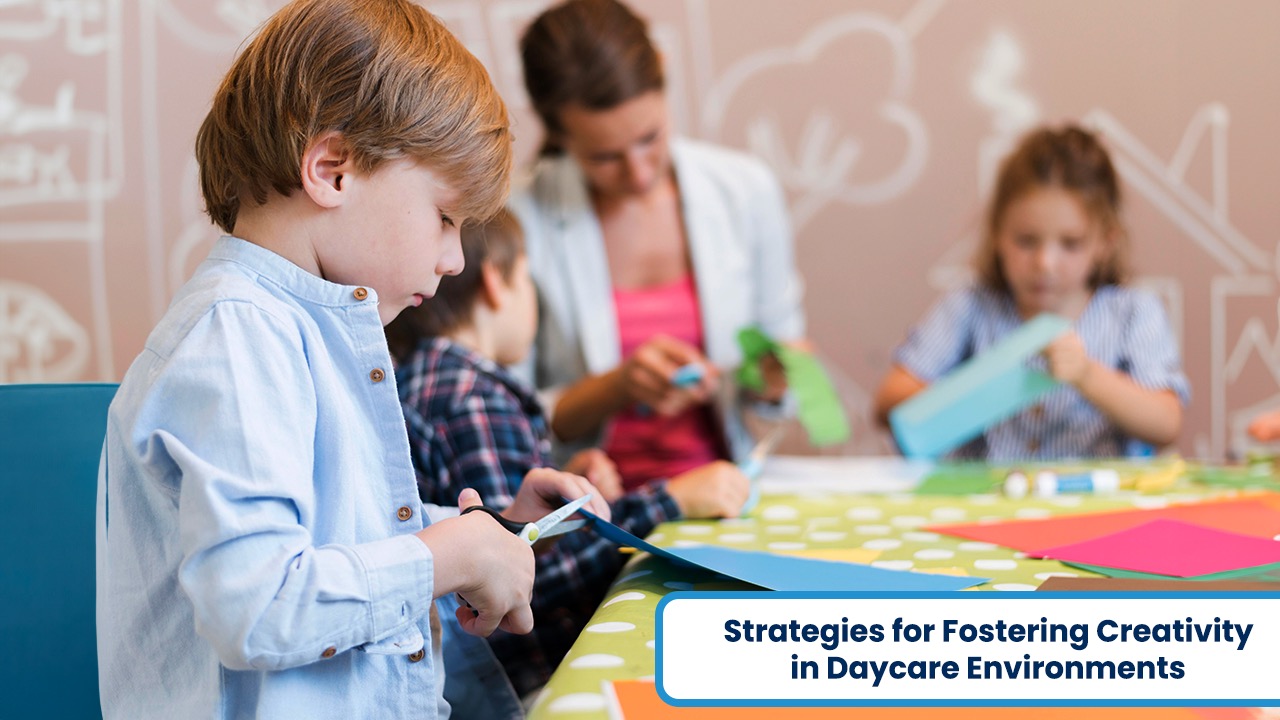
Screen time, the period spent in front of electronic devices such as TVs, computers, tablets, and smartphones, has become an integral part of children’s daily lives. In today’s digital age, it’s essential to understand the implications of excessive screen exposure on the developing minds of young individuals. This blog aims to shed light on the multifaceted impact of screen time on kids, emphasizing the need for a balanced approach to its usage.
Positive Impact of Screen Time on Kids
1. Educational Opportunities:
Screen time offers many educational tools and resources that can supplement traditional learning. Numerous applications, websites, and educational programs are designed to engage children in interactive and stimulating ways, promoting understanding of math, science, language, and more. These resources often cater to different learning styles, making education more accessible and enjoyable.
2. Cognitive Development:
Screen-based activities can enhance cognitive skills such as problem-solving, critical thinking, and spatial awareness. Video games, for instance, when age-appropriate and moderated, can stimulate strategic thinking and decision-making abilities in children. Additionally, interactive learning apps often engage kids in activities that sharpen memory, concentration, and reasoning skills.
3. Creativity and Imagination:
Screen time can be a gateway to creative expression and imagination. Apps, software, and digital platforms often encourage artistic endeavors, allowing children to explore their creativity through drawing, storytelling, music, and animation. These tools can inspire innovative thinking and serve as a canvas for self-expression and imaginative exploration.
4. Access to Diverse Information:
The internet and various digital platforms provide a wealth of information and diverse perspectives. Screen time can offer children exposure to different cultures, languages, and ideas that they might not encounter otherwise. Access to a broad range of content encourages curiosity and a deeper understanding of the world, fostering open-mindedness and global awareness.
5. Skill Development:
Screen-based activities help in the development of various skills. For instance, certain video games can improve hand-eye coordination and fine-motor skills. Coding applications and other tech-related activities can introduce children to computer literacy and programming basics. Additionally, interactive content often encourages teamwork, communication, and social skills in a shared or multiplayer setting.
Negative Impact of Screen Time on Kids
1. Physical Health Concerns:
Extended screen time often leads to a sedentary lifestyle, contributing to various health issues such as obesity, musculoskeletal problems, and poor posture. Prolonged sitting and limited physical activity associated with excessive screen use can have long-term health repercussions on a child’s overall well-being.
2. Disrupted Sleep Patterns:
Screen exposure, particularly in the evening, can interfere with the body’s natural sleep-wake cycle. The blue light emitted by screens can disrupt the production of melatonin, a hormone essential for regulating sleep. This disruption in sleep patterns can lead to difficulty falling asleep, poor sleep quality, and subsequent daytime fatigue.
3. Cognitive and behavioral effects:
Excessive screen time has been linked to attention problems and reduced cognitive abilities in children. It may impair a child’s attention span, affecting their ability to concentrate and learn. Furthermore, some studies suggest a correlation between increased screen time and behavioral issues such as aggression, impulsivity, and emotional regulation difficulties.
4. Vision Strain and Eye Health:
Prolonged staring at screens, especially in the absence of breaks, can lead to eye strain, dry eyes, and potential long-term vision problems. Children might experience discomfort, blurred vision, and headaches due to extended periods of screen use, impacting their overall eye health.
5. Social and Emotional Impact:
Excessive screen time may hinder the development of crucial social skills in children. Excessive screen time can limit face-to-face interactions and reduce the time available for real-life socializing. This isolation from direct social contact might impede the development of interpersonal skills, empathy, and the ability to read non-verbal cues, potentially impacting a child’s emotional intelligence and social relationships.
Tips for Responsible Screen Time Usage to reduce
Indeed, responsible screen time usage involves implementing strategies that promote a healthy balance between screen activities and other aspects of a child’s life. Here are some key tips for ensuring responsible screen time usage for children and reducing the negative impact of screen time on kids:
Establish clear rules and limits.
Set clear guidelines for screen time usage that align with the child’s age, maturity level, and overall routine. Establish specific time limits for daily or weekly screen use, outlining when and how long they can engage with screens. Consistency in enforcing these rules is crucial for effective management.
Choose age-appropriate and educational content:
Encourage the use of high-quality, educational, and age-appropriate content. Select applications, games, shows, and online resources that align with your child’s developmental stage and promote learning and skill development. Ensure the content is both engaging and enriching.
Engage in co-viewing and co-playing.
Participate in screen activities alongside your child. Co-viewing TV shows or movies and co-playing video games allows for shared experiences and provides opportunities for discussion. It also enables parents to monitor content and guide children on appropriate behavior and values.
Encourage Diverse Activities Beyond Screens:
Promote a variety of activities beyond screen time. Encourage outdoor play, hobbies, reading, creative pursuits, and social interactions to ensure a well-rounded childhood. Providing diverse activities helps children develop other skills and interests.
Use technology as a tool, not a babysitter.
Avoid using screens as a substitute for human interaction or to occupy a child’s time without supervision. Be mindful of using screens as a means of distraction or as a sole source of entertainment. Instead, aim for intentional and purposeful use of technology as a tool for learning and exploration.
Model healthy screen habits:
Children often learn by example. As a parent or caregiver, model responsible screen time habits by managing screen use. Demonstrating a balanced approach and setting a positive example can reinforce the importance of healthy tech habits for the entire family.
Create screen-free zones and times:
Designate specific areas in the house, such as bedrooms or dining areas, as screen-free zones. Additionally, set specific times, such as during family meals or before bedtime, when screens are not permitted. These boundaries help establish a healthy balance and promote family interactions.
Conclusion
Understanding both the positive and negative impact of screen time on kids is essential for parents and caregivers to make informed choices. Emphasizing moderation, balance, and active involvement in a child’s screen time activities while encouraging alternative offline pursuits is vital in fostering healthy development in today’s digital era. Learn more about the advantages of using technology in early childhood education here.


